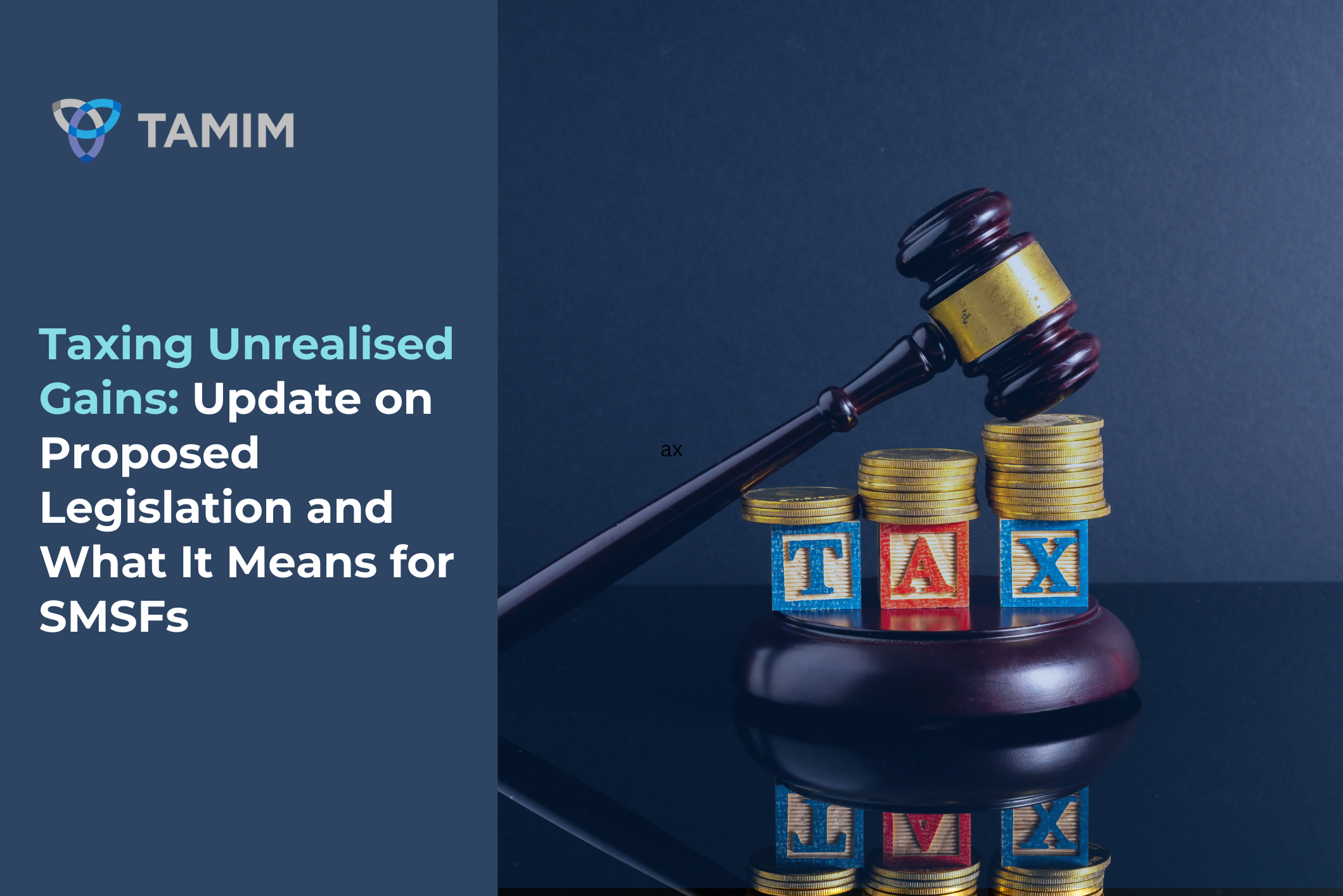The contentious proposal to tax unrealised capital gains on superannuation balances exceeding $3 million has been officially abandoned for this year, marking a significant development for SMSF trustees and the broader superannuation sector. The government’s Treasury Laws Amendment (Better Targeted Superannuation Concessions and Other Measures) Bill 2023 faced hurdles in the Senate, ultimately stalling its progress and removing it from the legislative agenda for now.

This update offers a reprieve to SMSF trustees and administrators who were bracing for the potential financial and administrative impact of the proposed tax changes. Below, we break down the latest developments and their implications for SMSF trustees.
Key Update: Division 296 Tax Shelved
The proposed tax, aimed at superannuation balances exceeding $3 million, would have introduced a significant departure from existing taxation norms by taxing unrealised capital gains. Critics argued that the measure imposed disproportionate burdens on SMSFs and their members, particularly those holding illiquid assets such as property, which could have forced premature asset sales to cover tax liabilities.
However, the bill’s inability to secure sufficient support in the Senate has deferred these changes for now, providing SMSF trustees with more time to plan and adjust strategies without the immediate pressure of new tax obligations.
Why the Deferral Matters for SMSFs
- Breathing Space for Trustees
SMSF trustees now have additional time to assess their portfolios and adapt their strategies without worrying about potential tax liabilities on unrealised gains. This delay offers an opportunity to prepare for any future legislative proposals that might revisit this issue. - Preservation of Flexibility
The shelving of the Division 296 tax allows SMSFs to maintain their flexibility in asset allocation. Trustees can continue investing in property, equities, and other illiquid assets without the immediate concern of tax liabilities on unrealised gains. - Continued Advocacy
The deferral highlights the impact of stakeholder advocacy, including the efforts of the SMSF Association and independent policymakers. Ongoing dialogue with policymakers will be essential to ensure that any future proposals balance the government’s goals with the needs of SMSFs.
What Led to the Delay?
The legislation faced significant opposition in the Senate, particularly from crossbenchers and advocacy groups. The government’s attempt to fast-track the passage of multiple bills through a guillotine motion was unsuccessful, underscoring the contentious nature of the proposed superannuation changes.
The SMSF Association welcomed the deferral as a victory for the sector, with CEO Peter Burgess describing it as a chance to revisit and refine the proposal to better address its unintended consequences.
What’s Next for SMSFs?
While the immediate threat of taxing unrealised gains has been removed, SMSF trustees should remain vigilant as the government may revisit the proposal in future legislative sessions. In the meantime, here’s what SMSF trustees should consider:
- Review Asset Allocations
Use this time to assess your portfolio and identify opportunities to optimise your SMSF structure. Ensure your investments align with long-term retirement goals and provide flexibility for potential legislative changes. - Consult Professionals
Work with your accountant or financial advisor to evaluate current asset valuations and explore options for managing potential tax implications. Proactive planning will ensure your fund remains resilient to future changes. - Stay Informed
Keep abreast of updates regarding superannuation legislation. The deferral offers a temporary reprieve, but staying informed will help you adapt to any future reforms.
The TAMIM Takeaway
The deferral of the $3 million super tax is a significant development for SMSFs, providing much-needed relief to trustees concerned about the impact of taxing unrealised gains. While this year’s legislative agenda no longer includes the proposed changes, SMSF trustees should use this time to strengthen their investment strategies and ensure they are prepared for any potential future proposals.
The postponement reflects the importance of stakeholder engagement in shaping fair and effective superannuation policies. At TAMIM Asset Management, we encourage SMSF trustees to remain proactive, consult with experts, and focus on maintaining compliance and performance in an ever-evolving legislative environment.
Stay tuned for further updates as we continue to monitor developments in superannuation legislation. For more insights and resources, visit our website.
